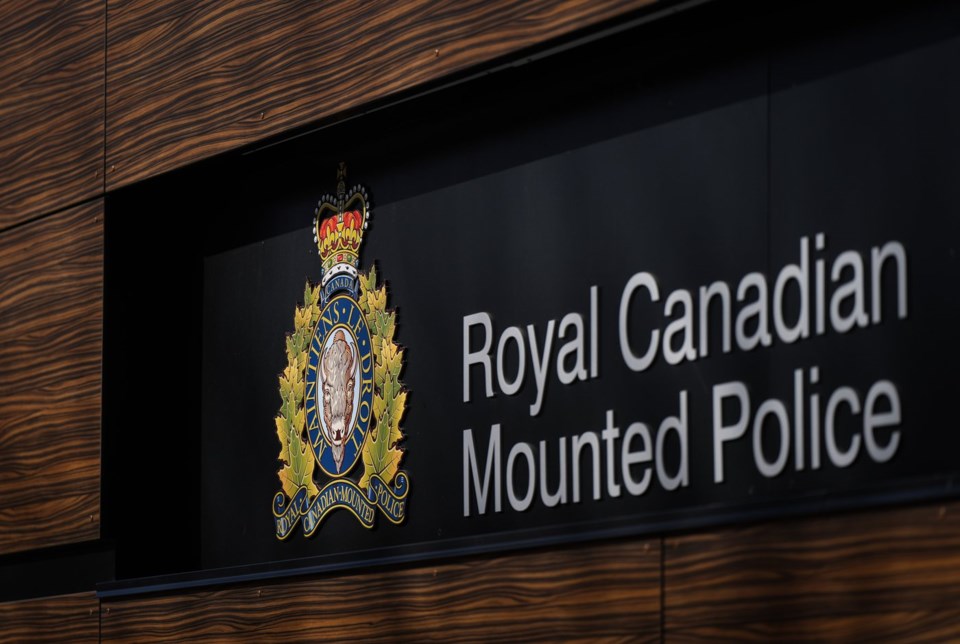OTTAWA — Members of a controversial RCMP policing unit violated a man's rights and acted unreasonably when they demanded to search him before arresting him near a British Columbia old-growth logging protest site in 2021, the Civilian Review and Complaints Commission for the RCMP has found.
The commission released a review of a complaint made by a man who had been hiking a forest service road with a group in September 2021 on Vancouver Island near Fairy Creek, where logging activity ignited protests against forestry firm Teal Cedar Products.
In April 2021, the company was granted a court injunction to stop people from impeding access to forest service roads, leading to the RCMP's community-industry response group to set up "exclusion zones" to stop protesters from obstructing logging in the forest.
The commission's review released Wednesday said the man was hiking and encountered a pair of police officers at an "access control point."
The officers "told the group that they had to submit to searches of their backpacks and provide identification before they could go any further," the commission's complaint review said.
The man objected to the search, told officers he had a right to be on a public road, and refused to obey when the RCMP ordered him to leave. The officers then "arrested the man and one of his friends for the criminal offence of obstructing a peace officer in the execution of their duty and transported him out of the area for processing."
The commission found the arrest was "groundless," and the demand to search his backpack was "unfounded" because he had been lawfully using the forest service road and also "wanted to protest the RCMP's restrictions."
"The arrest raises serious questions about the quality of the training given to RCMP members acting to enforce the injunction, and about the attitudes of the individual police officers on the ground towards the rule of law and civil liberties," the review said.
The man was not obligated to identify himself or submit to a police search after coming upon Mounties who refused to identify themselves by name, only reading out their badge numbers "quickly," and refused to repeat them, the review said.
Video footage of the interaction seen by the commission showed how officers were "dismissive and disdainful" about identifying themselves, and "refused to repeat their regimental numbers or even acknowledge that they were required by the RCMP’s own policy to wear a name tag on their uniforms," it said.
One officer also wore a "thin blue line" patch against RCMP uniform policy, the review concluded, with video evidence showing "that the RCMP member took a disrespectful and even hostile tone when the man questioned the presence of the patch on the RCMP member’s uniform when it was associated with white supremacist groups."
The thin blue line patch, depicted as a black-and-white Canadian flag with a blue line through the centre, had become a symbol of solidarity among police officers across Canada, but the RCMP directed that officers not wear the patch on duty as other groups viewed the symbol as racist.
The commission's review said the RCMP Commissioner supported many of the findings of the review, including how they were "inconsistent" with court rulings about exclusion zones.
The RCMP Commissioner, though, disagreed about "policy gaps" around the wearing of name tags, and about whether the thin blue line patch was "a deliberate display of disobedience or insubordination, or that the members knew that this symbol may propagate hatred or white supremacist views."
The RCMP Commissioner, the review said, didn't support "mandatory harsher penalties" for wearing the patch, instead supporting any disciplinary action to be taken "case by case."
"One of the explicit goals of the civil injunction was to permit public access to the area," the commission's review said. "It would be a perverse irony to rely on the goal of preserving public access to justify the RCMP’s activities to impede, obstruct, and interfere with that access on such a large and intrusive scale."
Police actions in Fairy Creek have been sharply criticized by a B.C. Supreme Court judge for overstepping the terms of a court injunction granted to Teal Cedar in 2021 after logging activity in the ecologically sensitive area set off protests, leading to hundreds of arrests.
The judge found in 2021 that "exclusion zones, checkpoints, searches, and restrictions on media members clearly interfere with important liberties."
Justice Douglas Thompson ruled that "the degree of interference with liberties of members of the public and members of the media is substantial and serious."
The Civilian Review and Complaints Commission for the RCMP is still working on completing a review of the actions of the Mounties' community industry response group in a "systemic investigation," after the judge threw out numerous cases against logging protesters for police failures in properly enforcing the court injunction in Fairy Creek.
This report by The Canadian Press was first published Sept. 11, 2024.
The Canadian Press




